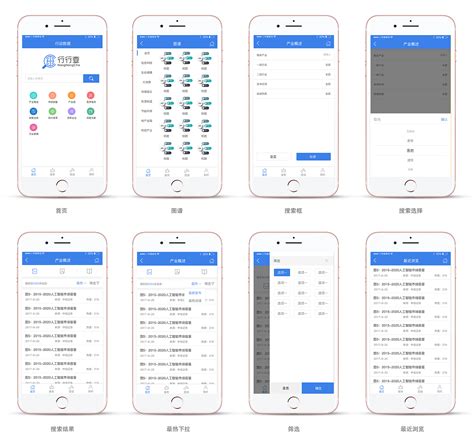**Title: Exploring the Impact and Evolution of Big Data in Mobile Applications**
In the dynamic landscape of mobile technology, the integration of big data has significantly transformed the functionality, efficiency, and user experience of mobile applications. This article delves into the profound impact and evolving trends of big data in mobile applications, offering insights and guidance for developers, businesses, and users alike.
**Understanding Big Data in Mobile Applications**
Big data in mobile applications refers to the utilization of large volumes of complex data sets to uncover patterns, trends, and insights that facilitate informed decision-making, enhance user experiences, and drive innovation. This integration encompasses various aspects, including data collection, processing, analysis, and utilization, leveraging advanced algorithms and technologies.
**Key Benefits and Advantages**
1. **Enhanced Personalization**: Big data enables mobile applications to analyze user behavior, preferences, and interactions in real-time, allowing for personalized recommendations, content delivery, and user experiences tailored to individual preferences.
2. **Improved User Engagement**: By leveraging big data analytics, mobile apps can gain deeper insights into user engagement metrics, such as session duration, click-through rates, and user feedback. This data-driven approach enables developers to optimize features, content, and user interfaces to enhance engagement and retention.
3. **Optimized Performance**: Big data analytics empower mobile applications to identify performance bottlenecks, optimize resource utilization, and enhance overall efficiency. By analyzing system logs, error reports, and performance metrics, developers can proactively address issues and deliver seamless user experiences.
4. **Predictive Analytics**: Through the integration of machine learning algorithms and predictive analytics, mobile apps can anticipate user needs, preferences, and behaviors. This proactive approach enables personalized recommendations, predictive maintenance, and targeted marketing campaigns.
5. **Monetization Opportunities**: Big data enables mobile app developers and businesses to monetize data assets through targeted advertising, subscription models, in-app purchases, and premium services. By leveraging user data ethically and transparently, businesses can unlock new revenue streams while delivering value to users.
**Evolutionary Trends and Future Directions**
1. **Edge Computing**: The proliferation of edge computing technologies enables real-time data processing and analytics at the edge of the network, reducing latency and enhancing responsiveness in mobile applications. This trend facilitates the integration of big data analytics directly into mobile devices, enabling offline capabilities and enhanced privacy.
2. **AI-Powered Insights**: The convergence of big data and artificial intelligence (AI) technologies enables mobile applications to deliver intelligent insights, predictive recommendations, and contextual awareness. By harnessing the power of AI-driven algorithms, mobile apps can analyze diverse data sources, including sensor data, social media feeds, and geospatial information.
3. **Blockchain Integration**: Blockchain technology offers opportunities to enhance data security, transparency, and trust in mobile applications. By leveraging blockchain-based solutions, mobile apps can ensure the integrity and immutability of data, enabling secure transactions, identity verification, and decentralized data exchanges.
4. **Ethical Data Practices**: With growing concerns about data privacy and security, ethical data practices are paramount in the development and deployment of mobile applications. Adopting transparent data collection policies, obtaining user consent, and implementing robust security measures are essential to building trust and credibility with users.
5. **Cross-Platform Compatibility**: As the mobile ecosystem diversifies with various platforms and devices, ensuring cross-platform compatibility and interoperability becomes crucial. Leveraging standardized data formats, APIs, and development frameworks facilitates seamless integration and enhances the scalability of big data solutions across different mobile platforms.
**Guidance for Developers and Businesses**
1. **Invest in Data Infrastructure**: Building a robust data infrastructure is fundamental to harnessing the power of big data in mobile applications. Invest in scalable storage solutions, data processing frameworks, and analytics tools that enable efficient data management and analysis.
2. **Embrace Data-driven Decisions**: Encourage a data-driven culture within your organization, where decisions are informed by empirical evidence and insights derived from big data analytics. Foster collaboration between data scientists, developers, and business stakeholders to leverage data effectively.
3. **Prioritize Data Privacy and Security**: Uphold stringent data privacy and security standards to safeguard user information and build trust. Implement encryption, access controls, and data anonymization techniques to protect sensitive data and comply with regulatory requirements.
4. **Iterative Development and Optimization**: Adopt an iterative approach to mobile app development, continuously collecting user feedback, monitoring performance metrics, and iterating based on insights gained from big data analytics. Prioritize feature enhancements and optimizations that drive meaningful value for users.
5. **Stay Ahead of Emerging Technologies**: Keep abreast of emerging trends and technologies in big data, mobile development, and related fields to remain competitive in the ever-evolving landscape. Experiment with new tools, frameworks, and methodologies to innovate and differentiate your mobile applications.
In conclusion, the integration of big data in mobile applications presents unprecedented opportunities for innovation, optimization, and user engagement. By embracing data-driven practices, staying abreast of evolving trends, and prioritizing user privacy and security, developers and businesses can unlock the full potential of big data to deliver impactful mobile experiences.










